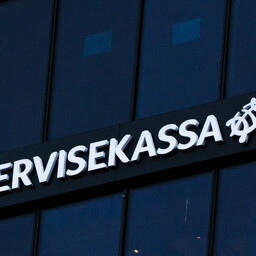Tervisekassa rahastamine
on riigile
suur murekoht
.
Tervisekassa rahastamine
Tõlge fraasile: Tervisekassa rahastamine
EN
Funding of the Health Insurance Fund
suur murekoht
Tõlge fraasile: suur murekoht
EN
major concern
Rahvastik vananeb ja
töösuhted muutuvad
. Seega on vähem töötajaid, kes maksavad sotsiaalmaksu. Sotsiaalmaksust saadakse raha tervisekassale.
töösuhted muutuvad
Tõlge fraasile: töösuhted muutuvad
EN
employment relationships are changing
Rahandusministeeriumi uute prognooside kohaselt on tervisekassa
puudujääk
väiksem kui varem arvati. Näiteks 2026. aastal on
puudujääk
105 miljonit eurot, mitte 178 miljonit.
puudujääk
Tõlge fraasile: puudujääk
EN
deficit
puudujääk
Tõlge fraasile: puudujääk
EN
deficit
Tervisekassa juhatuse liige Pille Banhard ütles, et
puudujääk
on väiksem, sest
sotsiaalmaksu laekumine
on parem. Samuti peab tervisekassa rohkem
tõhustama ja kärpima
oma kulutusi.
puudujääk
Tõlge fraasile: puudujääk
EN
deficit
sotsiaalmaksu laekumine
Tõlge fraasile: sotsiaalmaksu laekumine
EN
collection of social tax
tõhustama ja kärpima
Tõlge fraasile: tõhustama ja kärpima
EN
streamline and cut
Banhard lisas, et rahvastiku vananemise tõttu vajavad inimesed rohkem
terviseteenuseid
. Tervisekassa peab leidma lahendusi, kuidas teenuseid rahastada.
terviseteenuseid
Tõlge fraasile: terviseteenuseid
EN
health services
Sotsiaalminister Karmen Joller ütles, et ülesanne on tagada, et järgmisel aastal ei vähene
arstiabi maht
.
arstiabi maht
Tõlge fraasile: arstiabi maht
EN
volume of medical care
Rahandusministeeriumi uute prognooside kohaselt ei lõpe tervisekassa reservid enne 2029. aastat. Varem arvati, et reservid ammenduvad juba 2027. aastal.
Joller lisas, et tervisekassal on ka võimalik kasutada 200 miljoni euro suurust
reservkapitali ja riskireservi
.
reservkapitali ja riskireservi
Tõlge fraasile: reservkapitali ja riskireservi
EN
reserve capital and risk reserve
Kuidas aga edasi minna, kui reservid lõpuks ammenduvad? Endine tervisekassa juht Rain Laane ütles, et poliitikud peaksid otsustama, kuidas probleemile lahendusi leida.
Jolleril pole veel konkreetseid lahendusi, kuid ta loodab, et eraraha saab tervishoiu rahastamiseks kaasata. Novembris peaks valmima raport, mis hinnab, kuidas
eraraha kaasata
.
eraraha kaasata
Tõlge fraasile: eraraha kaasata
EN
involve private funds
The financing of the Health Insurance Fund is a major concern for the state.
The population is aging and employment relationships are changing. As a result, there are fewer workers paying social tax. The Health Insurance Fund receives money from the social tax.
According to new forecasts from the Ministry of Finance, the deficit of the Health Insurance Fund is smaller than previously estimated. For example, in 2026, the deficit will be 105 million euros, not 178 million.
Pille Banhard, a member of the Health Insurance Fund's board, said the deficit is smaller because social tax revenues are better. The Health Insurance Fund also needs to improve efficiency and cut its expenses.
Banhard added that due to the aging population, people need more healthcare services. The Health Insurance Fund must find solutions on how to finance these services.
Social Minister Karmen Joller said the task is to ensure that the volume of medical care does not decrease next year.
According to the Ministry of Finance's new forecasts, the Health Insurance Fund's reserves will not run out before 2029. Previously, it was estimated that the reserves would be depleted by 2027.
Joller added that the Health Insurance Fund also has the option to use a reserve capital and risk reserve of 200 million euros.
But how to proceed when the reserves are eventually depleted? Former Health Insurance Fund director Rain Laane said politicians should decide how to find solutions to the problem.
Joller does not yet have specific solutions, but she hopes that private funds can be involved in healthcare financing. A report assessing how to involve private funds is expected to be completed in November.

